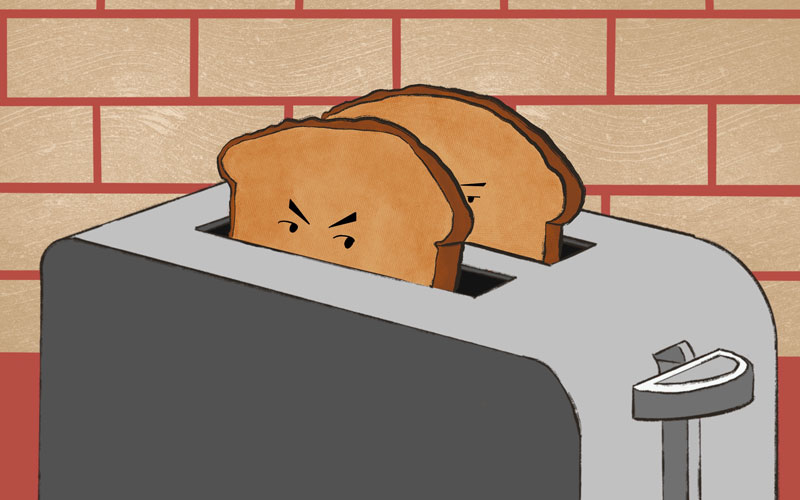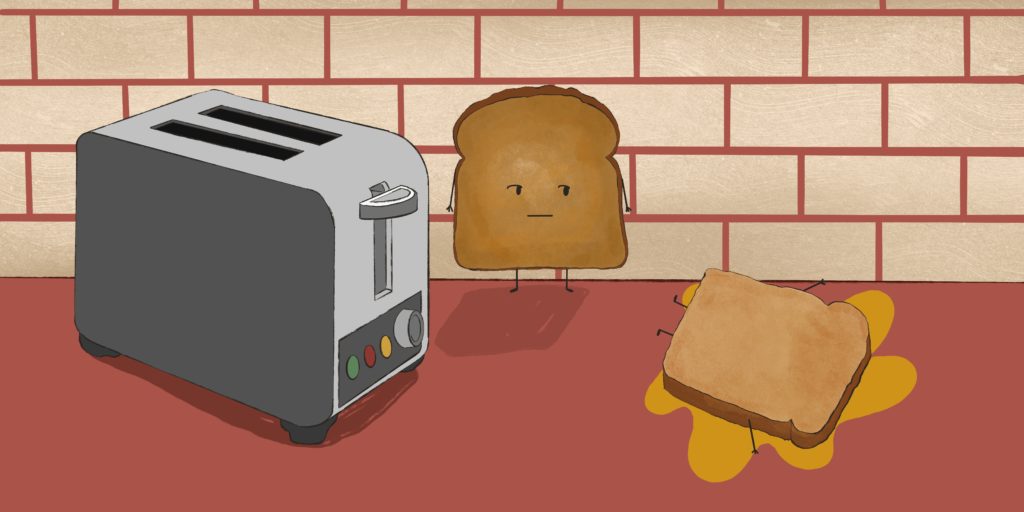I killed my brother.
That was in my first novel, Winter Eyes, a story of Holocaust survivors hiding their horrific past from their son. I made that queer main character an only child. Boom — he was gone.
If I could have erased my brother in real life, magically, or with a Marvel superhero power, I would have been thrilled to do it.
My mother liked to tell the story of how she found me crying at age three or so, sitting cross-legged in my Upper Manhattan bedroom with a set of Lincoln Logs at my feet. It was a room filled with northern light but my face was dark and woeful. When she asked what was wrong, I wailed, “I’ll never be as old as Sam!”
I never was anything like him. On top of being five years older, he seemed to excel in every possible way. He was skinnier, more handsome, more popular, had more friends, had more freedom, was athletic, and when he defied my parents, it was with enviable silence I could never copy. His hair was thick and curly, mine was painfully fine and straight. He had far better technique at the piano than I did and was also a wiz at math, while even simple arithmetic fogged my brain (and sometimes still does).
If Prince Harry can talk about his brother’s junk (and his own), so can I: When I was a teen, I discovered in the bedroom we shared that my brother was better hung than I was. Would the humiliations never end?
I hated him. I wanted to be him. I hated wanting to be him.
And so I killed him, quietly, in that novel years later. I may have gone on to use bits and pieces of him in various short stories, but I’ve never made him the subject of a memoir essay.
Until now.
While he wasn’t as oppressive in all his achievements and qualities as the monolith in 2001: A Space Odyssey, he cast a tremendous shadow over my childhood.
And then came college. Came and went, for him that is. He was kicked out of City College in his freshman year but kept it hidden from our parents as long as possible, with the help of a friend who called the house to report his grades. The precise nature of the scam was never explained to me, but it worked for a while, and when he was eventually unmasked as a fraud, my mother took to her bed for months with a pinched nerve.
I felt sorry for her but privately relished his total fall from grace. How could it have been any different?
Another friend of his years later said that he was kicked out for selling grass. I don’t know if this is true and I don’t know why anyone would tell me one way or the other. But in any case, my stock in our small family rose and rose. I was not getting into any kind of trouble, my grades were good (except for math) and I got a four-year grant from the private college of my choice in Manhattan and scored high enough on New York State’s Regents exam to get even more money for school, so the cost for tuition and books was close to zero.
I was golden. I was also gay, or questioning, or something, but I knew that revealing my confusion would tip the scales back in his favor.
Notice that I used “he” and “him” a lot. I prefer that to mentioning his name.
While he tried to find a place for himself in the world, I went on to get two graduate degrees and my grateful parents gave me a gift when I was done: They paid off my loan debt so that I could “start off clean.”
His star had diminished thanks to totaling a car my father bought for him, bad investments in real estate and gold, and marrying a woman of Polish descent with the same name as my mother — a double insult as my Holocaust survivor parents saw it. My mother recounted tales of Polish anti-Semitism when she grew up in Wilno and my father claimed Jewish tradition said it was wrong to marry someone with the same name as your mother.
I think he might have made that up.
The marriage was difficult and debt-ridden, and ended in divorce after 20-something years, as did his second one, but that was a quickie of just a few years. By contrast, I have been together with the same man for over three decades.
I did eventually come out to my folks and it went poorly. My brother told me I shouldn’t have stayed quiet “because they knew, anyway.” Thanks, bro.
Over the years, my father accused him of taking money from a joint account they had without saying anything. Did this happen? Was Dad forgetful and just angry at my brother? I don’t know. And why have a joint account with such a screw-up anyway?

There were more financial shenanigans too, but their extent was never clear to me because I was off in Michigan, far enough away from the family drama. And even now, there are many mysteries in my family that can’t be solved because my mother has been dead since 1999 and my father, as he’s gotten close to 100 years old and passed that mark, has become harder to understand and his memory has not surprisingly faded. There’s nobody who can tell me the truth. Or their version of it.
All I have is fragments, pieces of a puzzle that can’t be completed. But didn’t Henry James, who was gay, say that “the whole of anything can never be told”? Of course, he had famous brother issues of his own.
I recently learned that my brother styles himself as “Dr.” in part because he holds a degree in “Metaphysics” from the “Esoteric Interfaith Theological Seminary” where a degree costs just under $900 — and for no extra charge, you can become an ordained minister. When I shared this with my husband, he asked how rigorous the graduate work was. I explained that the main requirement was writing a 4,000-word “dissertation” about some aspect of spirituality. Oh, and an optional “something about your spiritual history.”
I can’t believe my brother thinks his “doctorate” is legit, and I’m glad my mother, who took higher education very seriously, isn’t alive to see this farce.
After his long string of troubles, she told me over the phone that when she and my father were out eating breakfast with him one morning, my brother dropped his toast on the floor, butter side down, and she said to my father in Russian, “Of course. What can you expect from him?”•




